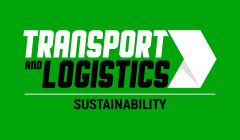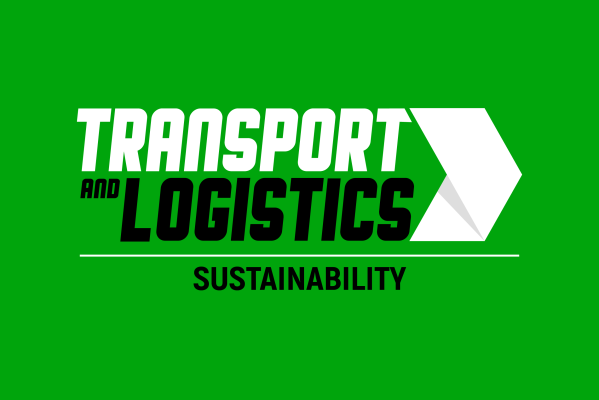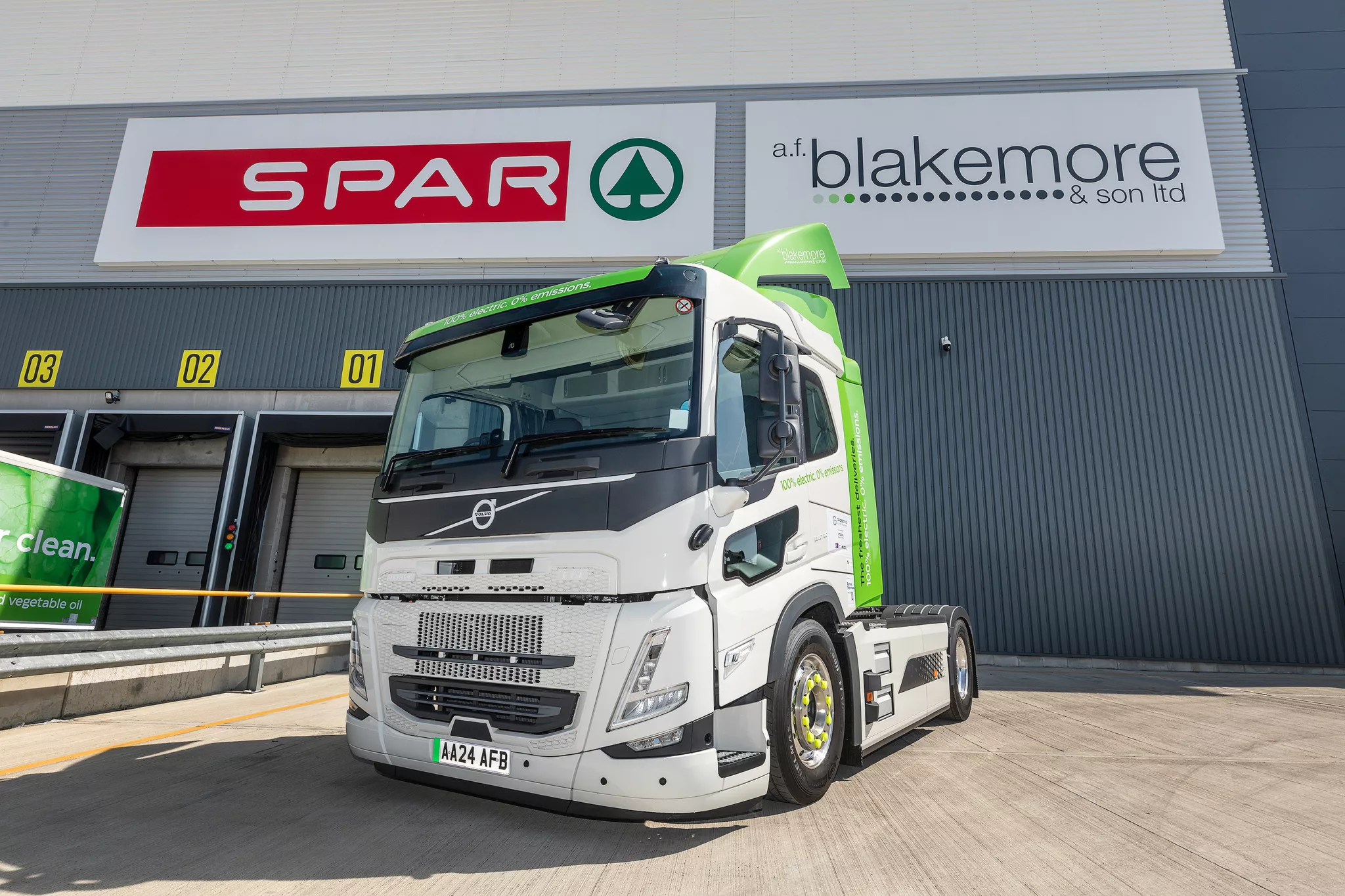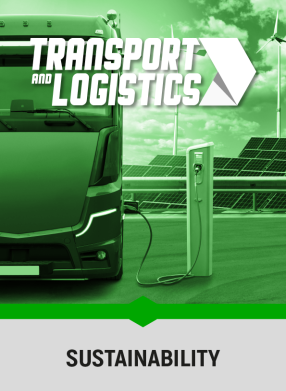The first fully electric Heavy Goods Vehicles (eHGVs) have been delivered under the Electric Freightway programme to A.F. Blakemore & Son, one of the UK’s largest privately owned family businesses operating across the retail and foodservice sectors.
Electric Freightway is part of the Zero Emission HGV and Infrastructure Demonstrator Programme. Funded by the Department for Transport and delivered in partnership with Innovate UK, it is attempting to lay the foundations for a nationwide charging network for electric trucks.
A.F. Blakemore & Son is one of 33 consortium members taking part in this pioneering plan to decarbonise the nation’s heavy goods transport. The programme is being led by electric vehicle charging specialists, GRIDSERVE, alongside principal partner Hitachi ZeroCarbon having responsibility for all vehicle data collection, analysis and reporting.
A multi-generational family business, A.F. Blakemore & Son is the largest SPAR wholesaler in the UK and specialises in food supply and distribution across both retail and wholesale sectors. Its current delivery fleet comprises 103 articulated units with 178 trailers and 130 rigid HGV vehicles.
The two Volvo FM Electric tractor units, supplied by Hartshorne Group and Volvo Trucks, represent a huge statement of intent for the company and are already operating from its Bedford depot.
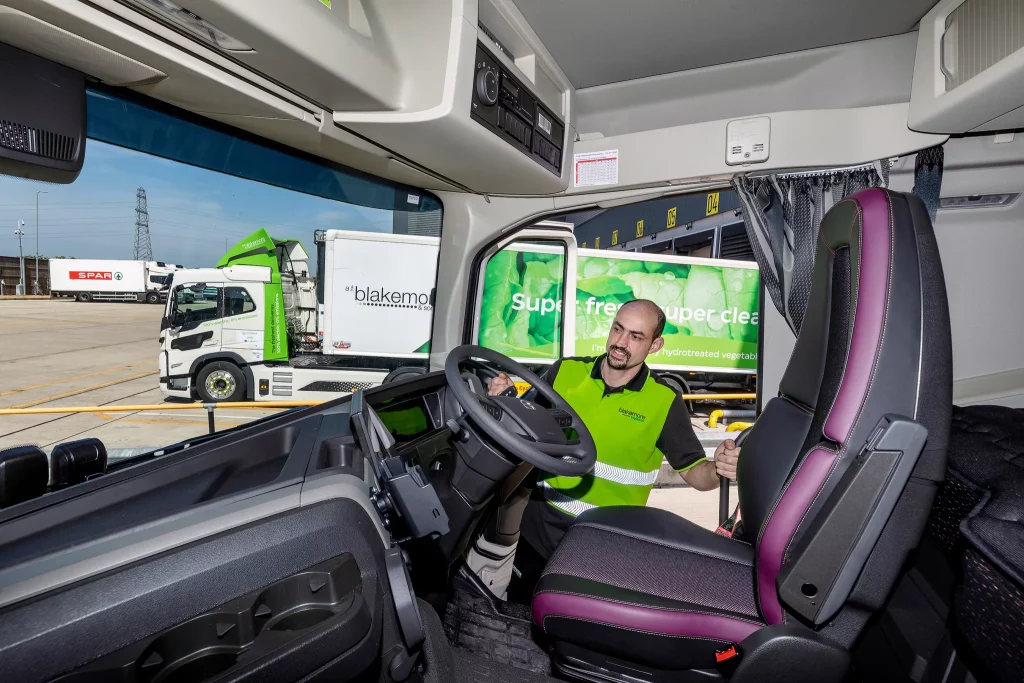
Each vehicle features a 540kWh battery and three electric motors delivering 675bhp and a maximum 185-mile range, enabling them to directly replace roles that were previously performed by diesel-powered trucks. A.F. Blakemore & Son estimates their inclusion to the fleet will save 45,000 litres of diesel and prevent more than 120 tonnes of carbon dioxide (CO2) being emitted into the atmosphere each year.
The data from the vehicles, collected by Hitachi ZeroCarbon, will include battery state of charge and health, vehicle load, geography and terrain, and weather and seasonal impacts. This will provide A.F. Blakemore & Son with a clear understanding of eHGV compatibility on existing routes and total cost of ownership compared to diesel HGVs.
In a second phase, two further eHGVs will be purchased under the Electric Freightway programme to operate from its central distribution centre in Willenhall, West Midlands, further demonstrating the company’s commitment to developing a zero emissions fleet.
A.F. Blakemore’s Responsible Business Director, Caoire Blakemore, stated: “We are thrilled to be at the forefront of the electric vehicle revolution in the convenience retail sector. The addition of these electric HGVs demonstrates our commitment to reducing our environmental impact. We believe this is just the beginning of our journey towards becoming a net zero carbon company by 2040 and we are excited to see the positive impact these vehicles will have on our operations and the environment.”
The heavy goods sector currently accounts for just under 20% of the UK’s transport CO2 emissions despite contributing a fraction of the mileage of cars. If the 400,000 HGVs on UK roads today were switched to electric, the UK could save more than 18.6Mt CO2 each year.
Sam Clarke, Chief Vehicle Officer at GRIDSERVE, added: “This is a proud day for everybody involved in the Electric Freightway programme and very soon, GRIDSERVE will be installing the depot charging that will support these impressive trucks. A.F. Blakemore & Son has such a deep understanding of retail, wholesale and foodservice, but it’s their enviable values-led culture that makes them a perfect consortium partner. We’re looking forward to supporting their decarbonisation journey and hope that others will follow their lead.”
Alistair Barnes, Senior Programme Manager at Innovate UK, said: “We are proud to support the Electric Freightway programme alongside the Department for Transport, and it is fantastic to help companies like A.F. Blakemore & Son play their part in the UK’s world-leading plans to decarbonise our vital transport network and share learning.”
